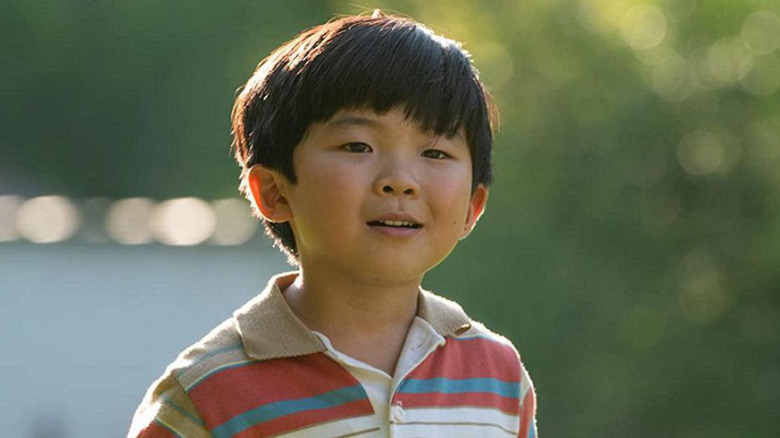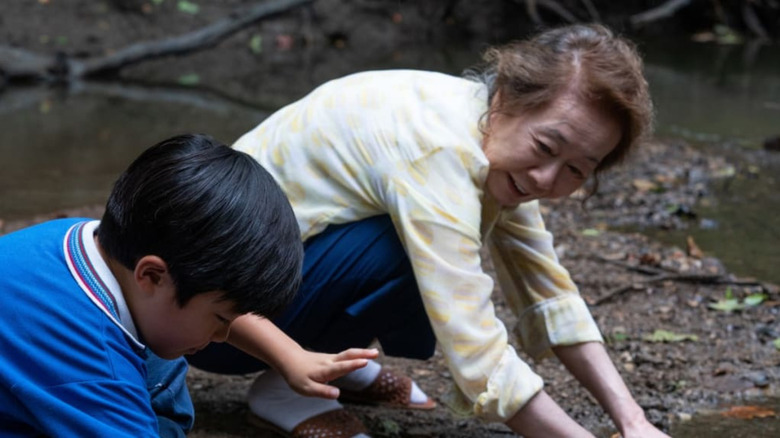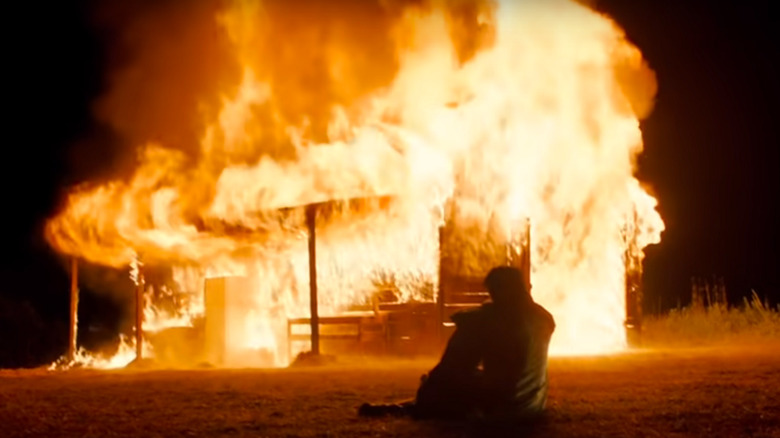Minari Almost Had An Entirely Different And More Depressing Ending
"Minari" is one of those movies that feel like both a punch to the gut and a warm hug at the same time. Lee Isaac Chung's story of a Korean American family trying to achieve the quintessential American Dream is one that many can relate to, in one way or another. Perhaps it was because of the Yi family's continued resilience and faith that the film garnered so much critical acclaim, earning six Oscar nominations and one win for Youn Yuh-jung as Best Supporting Actress.
We see this resilience come full circle at the end of the film, with the family's produce barn gone in a fire but the family themselves being closer than ever. However, this wasn't originally supposed to be the film's definitive ending, according to the screenplay book for the film. The book, published by "Minari" distributor A24, revealed that the movie could have instead ended with a time jump and one very heartbreaking scene. Get ready to put your grandparents on speed dial.
Minari is wonderful
While the cast of "Minari" is small, it can be argued that its most crucial role is Soon-ja (Youn Yuh-jung), the matriarch of the Yi family and the mother of Monica (Ha Ye-ri). Despite her cold exterior, she does introduce the theme of continued resilience in the face of hardships to young David (Alan Kim), and the stroke she suffers is a pivotal turning point.
So, how does she factor into the original ending of "Minari"? Like the official ending, she survives the barn burning and continues to live with her family for some time. However, in a seven-year time jump, it is revealed that she dies in a nursing home after David and his sister Anne (Noel Cho) visit her. The final shot of the movie would be somewhat similar to the one we saw, with it ending on a shot of minari growing in a nearby creek.
Why this ending didn't happen
Yeah, so that would have been a stone-cold bummer of an ending. The original script took around six months for Chung to complete, and he told Entertainment Weekly that the ending was the most difficult part of the writing process, as he wasn't sure how the story should wrap up. However, it was thanks to a few logistical issues that he came to a realization; although the movie was based on his upbringing in Arkansas, he was ultimately writing a work of fiction.
"It dawned on me that the reason I hadn't come up with an ending I liked was because I was still trying to make this a memoir when it should be fiction," he said. "When I stopped thinking of the film as autobiography, it let me think of the film as a fable — and I like fables that are hopeful."
You can't really argue with that logic. Although both endings are thematically similar, the one that made it into the finished movie was ultimately more profound, and it sounds like Chung made the right call.


